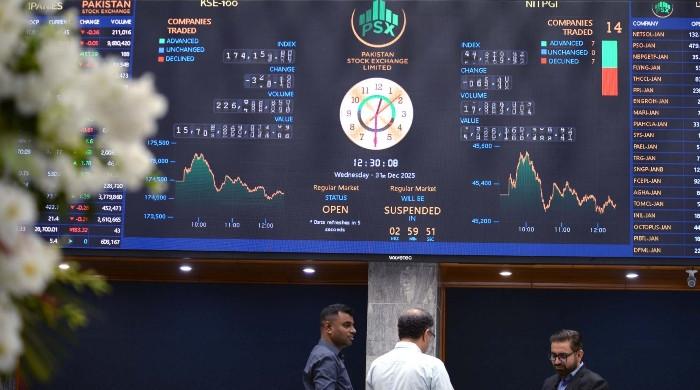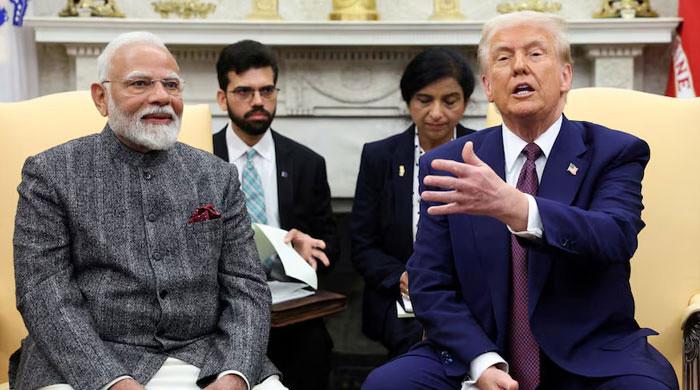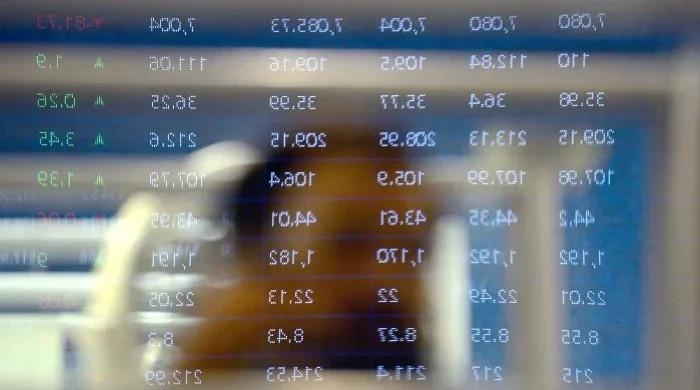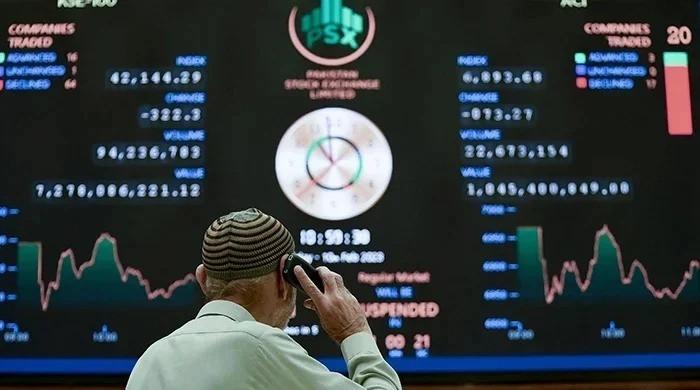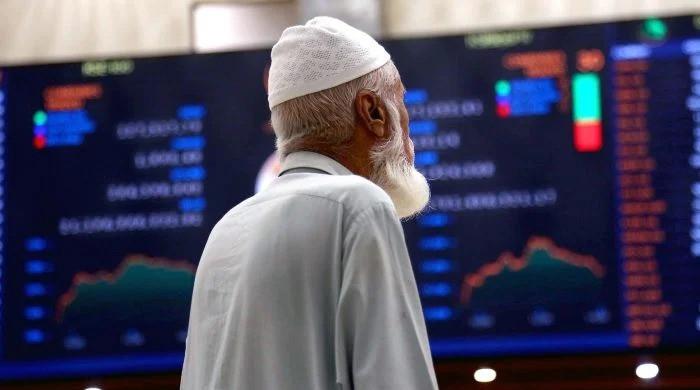Volatile week sees another round of bloodletting at the Pakistan Stock Exchange
KSE-100 index sheds 202 points in outgoing week amid persistent pressure to settle at 44,871.71 points
October 02, 2021
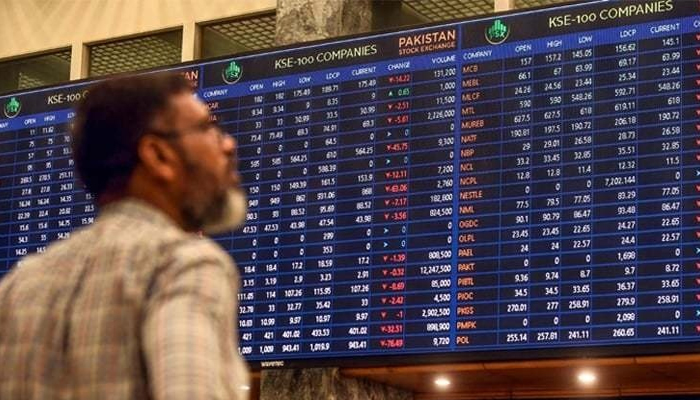
- KSE-100 index sheds 202 points in outgoing week amid persistent pressure to settle at 44,871.71 points.
- Selling pressure persisted throughout the week in index-heavy sectors as the unfolding geopolitical scenario made investors wary.
- A report from Arif Habib Limited predicts the market is expected to be positive in the coming week as scrips are trading at attractive valuations.
KARACHI: Stock trading remained choppy for most of the sessions in the outgoing week as the KSE-100 index oscillated between the red and green, following the news flow. The benchmark index dropped 202 points or 0.4% in the week ended October 1 amid persistent pressure to settle at 44,871.7 points.
Selling pressure persisted throughout the week in index-heavy sectors as the unfolding geopolitical scenario in terms of relations with the US and the ongoing situation in Afghanistan made investors wary.
The week kicked off on a bearish note as shares took a battering in the wake of currency devaluation which pushed the benchmark index below the 45,000-point mark.
A report from Arif Habib Limited noted that the market commenced on a negative note due to “high global commodity prices such as all-time high coal prices of $200.5 per ton tagged with Arab Light Price reaching a three-year high of Rs80.20 per bbl".
However, the tables turned and after posting losses in seven consecutive sessions, bulls staged a comeback at the bourse. Investors' sentiment turned positive on the back of expectation of re-entry in the International Monetary Fund (IMF) programme along with the government announcing measures to slow down imports, which cushioned the dip.
Unfortunately, sentiments turned sour once again on Wednesday and the market dived over 900 points by the end of the session on the back of a proposed bill in the US Senate regarding counter-terrorism in Afghanistan that caused anxiety among investors as they weighed the potential impact on US-Pakistan ties.
The US senators have moved a bill titled 'Afghanistan Counterterrorism, Oversight, and Accountability Act' in the US Senate seeking imposition of sanctions on the Afghan Taliban that could also potentially extend to Pakistan.
On Thursday, investors shed the gloom of the previous session and recouped most of the losses incurred in the last session of September.
Unfortunately, the momentum could not be sustained and the bears made a comeback for the last session mainly due to continuous depreciation of the Pakistani rupee against the US dollar which remained a cause of concern for foreign investors, who have been sustaining losses on old positions in exploration and production and banks.
Cumulatively, the benchmark KSE-100 index recorded a decrease of 5.3% during 1QFY22 after positive returns during the last five quarters.
September was marked as the “worst month after March 2020”.
A report by JS Global noted: “After giving a seven-year high performance of 38% return in FY21, KSE-100 index has turned out to be one of the worst-performing markets during 1QFY22.”
Other major developments during the week were: Paris Club extended Pakistan’s debt payment deadline of $1 billion until December 2021, Pakistan entered into an agreement to get oil on deferred payments from Saudi Arabia that may likely relieve some pressures on import bill, the Federal Board of Revenue collected Rs1.395 trillion in taxes during the first quarter of the fiscal year and the SBP reserves declined $248.9 million to $19.29 billion in the week ended September 24, 2021.
Foreign selling was witnessed this week, clocking at $21.9 million against a net buy of $6.7 million recorded last week. Selling was witnessed in commercial banks ($13.5 million) and exploration and production ($4.3 million).
On the domestic front, major buying was reported by commercial banks ($10.1 million) and insurance companies ($8.1 million).
During the week under review, average volumes clocked in at 355 million shares (down by 8% week-on-week). Meanwhile, the average value traded settled at $76 million (up by 3% week-on-week).
Major gainers and losers of the week
Sector-wise negative contributions came from commercial banks (-117 points), pharmaceuticals (-47 points), fertilisers (-32 points), cement (-25 points), and insurance (-21 points), whereas sectors that contributed positively were oil and gas exploration companies (+35 points) and oil and gas marketing companies (+20 points).
Scrip-wise major losers were MCB (-84 points), HBL (-84 points), Fauji Fertilizer Company (-42 points), Lucky Cement (-33 points) and UBL (-30 points). On the flip side, major gainers were Meezan Bank (+55 points), Pakistan Oilfields (+47 points) and K-Electric (+24 points).
Outlook for next week
Arif Habib Limited stated: “The market is expected to be positive in the coming week as scrips are trading at attractive valuations.”
“Furthermore, IMF review is starting from October 4, which if successful may provide much-needed respite to the ailing investment sentiment,” it said, adding that the recent statement of the US secretary of state recognising Pakistan’s crucial part in making talks with Taliban successful will ease off investor concerns.
“The KSE-100 is currently trading at a PER of 5.3x (2021) compared to Asia-Pacific regional average of 14.3x while offering a dividend yield of 8.2% versus 2.3% offered by the region,” the brokerage house stated.




